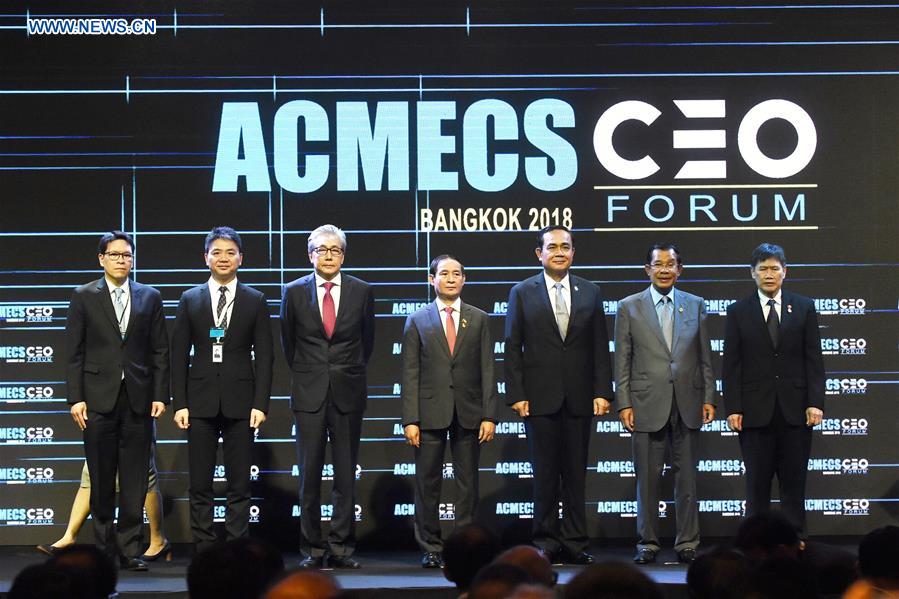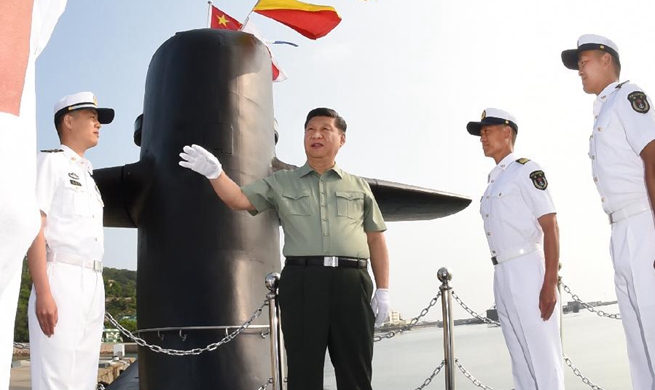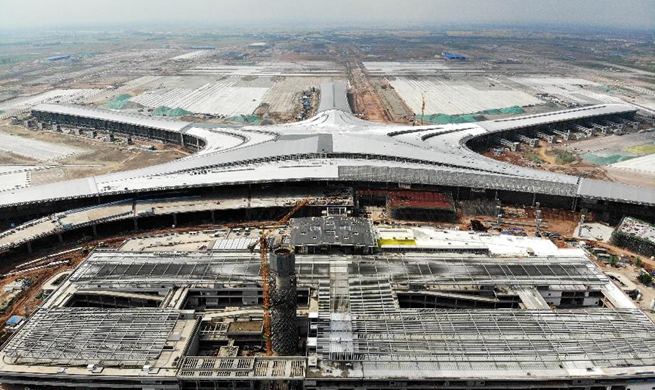
Thai Prime Minister Prayut Chan-o-cha (R3), Cambodian Prime Minister Samdech Techo Hun Sen (R2), Myanmar President U Win Myint (C), Thai Deputy Prime Minister Somkid Jatusripitak (L3) and Liu Qiangdong (L2), founder and CEO of JD.com pose for a photo in Bangkok, Thailand, June 15, 2018. Thai Prime Minister Prayut Chan-o-cha on Friday called on the private sector to contribute to the development of Ayeyawady-Chao Phraya-Mekong Economic Cooperation Strategy (ACMECS) countries so as to maintain their role as "core of ASEAN (the Association of Southeast Asian Nations)". (Xinhua)
BANGKOK, June 15 (Xinhua) -- Thai Prime Minister Prayut Chan-o-cha on Friday called on the private sector to contribute to the development of Ayeyawady-Chao Phraya-Mekong Economic Cooperation Strategy (ACMECS) countries so as to maintain their role as "core of ASEAN (the Association of Southeast Asian Nations)".
ACMECS countries are Cambodia, Laos, Myanmar, Vietnam and Thailand.
Delivering a keynote speech to open the ACMECS CEO Forum in Bangkok, Prayut said that Thailand, the current chair of ACMECS, is calling on the private sector of the five-nation bloc to join in the strengthening of strategic partnership cooperation and the building up of ACMECS community on the basis of mutual interests.
The Thai leader said ACMECS economy has grown tremendously and the overall CLMVT countries (Cambodia, Laos, Myanmar, Vietnam and Thailand) economy has an average growth rate of about 6 to 8 percent per year, the highest growth rate in ASEAN.
However, he said the global economy has changed dramatically with scientific and technological progress taking place swiftly as the world is stepping into the age of digital economy, prompting ACMECS to quickly adjust itself accordingly.
"I invite the private sector to take an active role in determining targets for human resources development and innovation. I also call upon the private sector to participate in identifying issues that they would like to seek facilitation from the government, as well as rules and regulations that they would like to be made more flexible and harmonized in order to cope with rapid technological changes taking place at this moment," the prime minister added.















